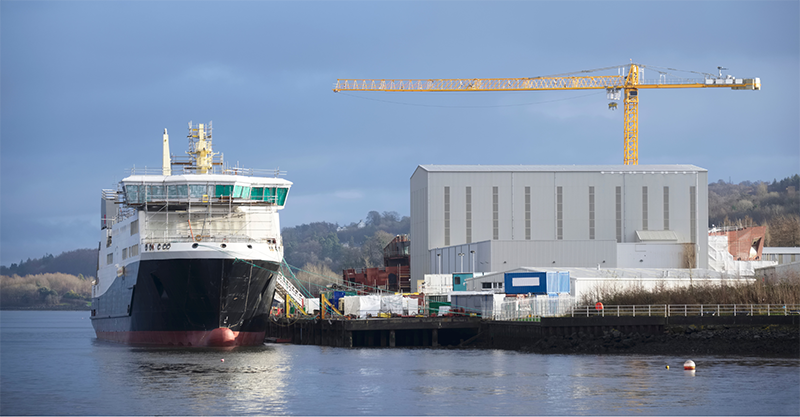
ADDRESSING anticipated skills shortages in artificial intelligence (AI), robotics, and automation has been described as ‘essential’ to the future of the shipbuilding sector, according to a new report by the National Manufacturing Institute Scotland (NMIS), operated by the University of Strathclyde and based at the Advanced Manufacturing Innovation District Scotland (AMIDS) in Renfrewshire.
Developed with industry partners and Innovate UK’s Workforce Foresighting Hub, the report highlights the need to equip the workforce with the skills required as the industry evolves and adopts new technology. It looks ahead to the next five years and beyond, emphasising the importance of adapting both traditional and emerging roles.
While automation and robotics are already used in a variety of tasks by shipbuilding companies, the team behind the foresighting work found demand for technology to assist with welding, joining, and inspections in confined or hazardous spaces is only likely to increase. For example, the roles of some welders will evolve to combine traditional skills with expertise in new technologies and materials, as advanced technologies such as robotics and additive manufacturing are integrated into operations.
This transition is said to underscore the need for a collaborative approach between industry and training providers to design programmes that prepare workers for these hybrid roles. Updated training modules, short courses and continuous professional development (CPD) programmes are among the recommended actions to bridge gaps in current knowledge and skills within the workforce.
Greg Cranstoun, industry and skills engagement lead at NMIS, said, “Scotland has a deep-rooted history of shipbuilding, particularly on the Clyde, next to where NMIS is based, but the challenges of a skills shortage apply to the whole of the UK. The sector has been recognised for its strategic economic importance, but to ensure shipbuilding and its supply chains can thrive, we need to ensure we have the right people with the right skills lined up to meet demand.
“Technology is only going to become more prevalent as the adoption of AI and robotics increases in all sectors, and there are significant gains that could come from using advanced equipment to improve both health and safety and productivity in shipyards. Manufacturers need to think ahead to the types of roles this will create, and how to equip the current workforce and future employees with the skills to take this forward.”
Debbie Johnson, head of innovation talent & skills at Innovate UK, added, “The speed at which we can leverage innovative technologies impacts the global competitiveness of UK organisations. Often, new technologies are available, but a lack of skilled workforce prevents their full utilisation.
“By accelerating the adoption of new technologies by having the right skills at the right time, UK businesses can better position themselves as market leaders. Enabled by the Innovate UK Catapult Network, our Workforce Foresighting Hub enables the adoption of a long-term perspective and provides the ability to respond more swiftly to emerging skill demands, to better capitalise on new technologies and lead future industries.”
To view the full report, visit: https://iuk-business-connect.org.uk/perspectives/future-proofing-the-uk-shipbuilding-sector/








